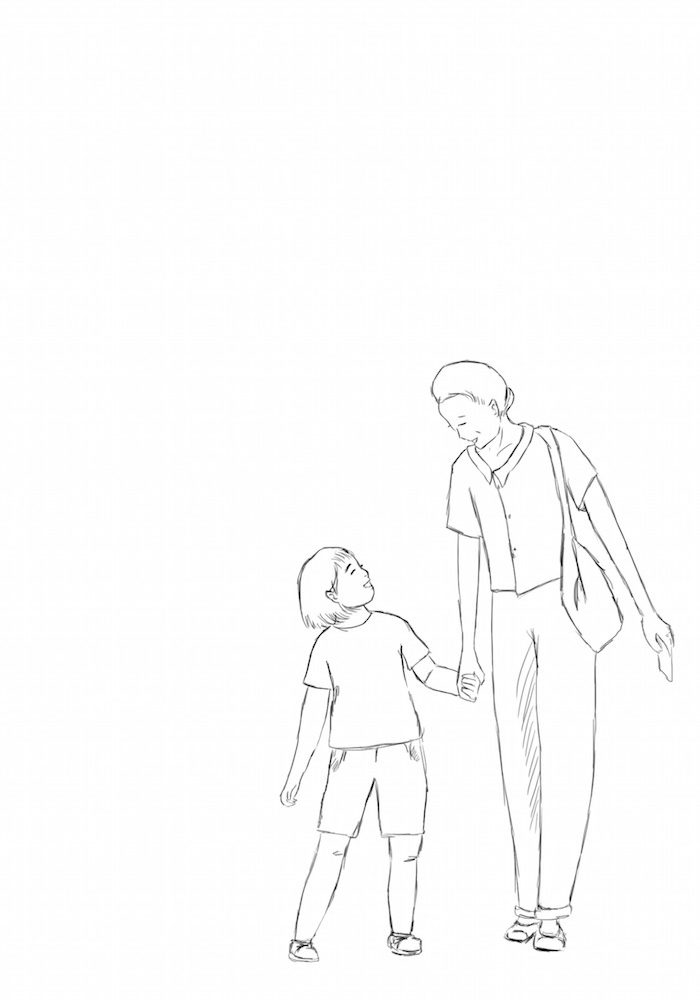
Introduction to Chronicle Journaling
Our mind and thoughts, when uncontrolled, can become our greatest liability and damage our psyche in ways that will significantly hurt our daily life, which is why we must train our mind to overcome these unconstructive thoughts.
What is chronicle journaling? Chronicle journaling is a practice I have adopted to help shape the way I interpret my reality, and frame my psychology to find joy and peace in times of dullness or melancholy. But before I delve into the details, let me share with you my story on why I value and treasure this practice.
My grandma, Ayako, is among the most positive, strong, and independent people I know. She’s an incredibly strict woman, who I used to be terrified of, but as I grew older I’ve come to respect and value the wisdom she instilled in me at a young age.

My parents chose to raise my siblings and

But one of my favorite activities we did together was to wake up really

One particularly bad morning, as we prepared to go on our ritualistic morning walk, I asked my grandmother if we could buy ice cream on the way back. It was getting hot, and we hadn’t had sweets in a long time so I felt that I could test my luck. She strictly said no, chastised me for wanting to eat ice cream before breakfast, and then commented on my unhealthy habits. It stung. Hard.
My mood now lousy, I dragged my feet on our walk, refused to laugh or participate in the counting cats game. As I watched my sisters happily giggle along with my grandma and have fun without me, my anger turned into sadness. I felt incredibly lonely.
When my grandmother noticed that I started crying, she came by my side, and asked why I was so upset. I had a big, loud, angry speech prepared in my head, about how she is rude, uncaring, and terrible, but I suddenly forgot it all. Instead we sat down on a bench and I cried into her arms, and she listened to my wails in silence. Once I was just about done letting out all my emotions, she held my hand, and told me that she loved me, and I shouldn’t worry.

She justified that she couldn’t apologize for what she said, as she felt it was something I needed to hear and learn, but did not mean for those words to hurt as they did. She explained, “Kaki, you must learn how to overcome these negative interpretations of what you hear and experience. Your mind and your thoughts misunderstand what happens around you, and you are going to end up hurting yourself more than you should ever need to. Your psyche is a muscle, and like how every muscle needs to be trained, you need to train your brain to adopt a positive outlook on what you hear and what happens to you.”
It was an emotional morning for me, so I remember the day well, but my young self didn’t quite understand what these words meant until I became older. It was when I became more conscious of my anxious thoughts that I was able to comprehend that my grandmother was trying to teach me not that I was being irrational, but that these intrusive negative thoughts were something that I didn’t have to live with, and could learn to rewire, train, and overcome, for a growth mindset. This is why I developed chronicle journaling, to help me.
To train a positive mindset requires a bit of discipline and conscientious effort, but like working out and going to the gym, it is something that gets easier and better with time and continued effort. But to see results, you must put in the work, and you will reap the benefits of having a stable mindfulness.
What is chronicle journaling?
Chronicle journaling is a type of journaling that is focused on recounting your past, but through a positive lens. Every day, you write down three good thingsthat had happened to you that day, no matter how big or small. Events that made you happy, events that made you excited, or events that made you calm and find joy. This mindfulness practice is used to focus on affirming thoughts, and shift your psychology to interrupt anxious thoughts, prevent unproductive stress, and promote meaningful and quality work through calmness.
You should focus on what made you happy, excited, and joyful that day, to develop a habit of defining a positive outlook on your future and past. There is really no “wrong” way to chronicle journal, so don’t get bogged down by wanting to do it perfectly the first time around, because the important part of the exercise is to get started and enjoy the process. Focus on being consistent about the practice, because a little bit of writing today and enjoying the process is much better than making the practice a burden, which will eventually lead to abandonment.
You’ll find the benefits of chronicle journaling are greatest when you’re at your lowest points. When things are going well in life, the exercise seems almost pointless, but it is important to continue the practice, because when you need the peace and positivity most, it’ll come easier.
As people don’t become marathon runners overnight, people don’t develop a working positive psyche overnight either. This mindfulness practice is used to focus on creating affirming thoughts, and shift into a joy-oriented psychology which will prevent unproductive stress, promote meaningful work, and open opportunities for adventure and love that would have previously been held back.

If this article was any use to you, please leave a comment or email me at kokumura@kakikata.space! I love hearing from you guys, learning from you, and listening to your stories. I reply to every single email I get and want nothing more than to support those who are looking for a bit of guidance and ways to help themselves.
With love,
Kaki